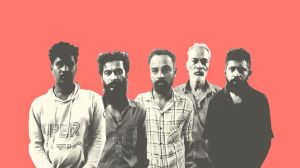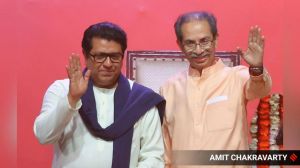The Write discussion
If there is a well-built script behind every effective film,then it goes without saying that behind the script,there is a strong scriptwriter.
Scriptwriters from across the country unveiled the intricacies of screenplay during a workshop at PIFF
If there is a well-built script behind every effective film,then it goes without saying that behind the script,there is a strong scriptwriter. For the first time in the history of the Pune International film Festival (PIFF),a scriptwriting workshop was organized,where connoisseurs from the field of filmmaking,such as Subhash Jethi,Kumar Gautam,Atul Tiwari,Anjum Rajapalli,Imtiaz Hussain and Pinchas Eden interacted with film lovers,filmmaking students,critics,directors and numerous well-known faces from the world of films.
“An effective script is like a seed because in the seed lies the DNA that further develops into a powerful film. Filmmaking might be the director’s medium,but what goes behind the screens is a creative screenplay,” says Atul Tiwari,as he unveiled the intricacies of the process of scriptwriting. Analysing the difference between an effective novelist and a successful scriptwriter,he says,”Munshi Premchand,Amrutlal Nagar have been effective novelists but what kept them away from being effective film writers is the fact that while the message in a novel and a film might be the same,the process of unfolding the message is entirely different. While a novel is based on mindscape,a film script is based on visuals — such as location,time and so on.”
With films such as Bose – The Unsung Hero to his credit,Tiwari explained the niceties of writing historic scripts with an example. “History is available in bits and pieces. It is like standing on Kanchenjunga and describing Everest. While the peaks are clearly visible,the rest of the picture is hazy. It is a blessing in disguise as the writer gets the liberty to explore his creativity in this part of the script,” he elaborates.
Describing the creative thought process of a playwright,Israeli scriptwriter Pinchas Eden,with over 150 fims to his credit,explains,”The best part of a scriptwriter’s life is that half of it is spent in living characters that he has been creating. As a scriptwriter,I have been a prisoner,an electrician,a carpenter,a drug addict and countless others. The skill of a writer lies in the fact that while becoming friendly with his characters,he has to think like them and not make them think like himself. So,rather than them speaking a scriptwriter’s language,he should be led by them.” Making it a point to address the Israel-Palestine issue,Eden displays the true imagination of a scriptwriter as he says,”I am sure that as we all are fighting on issues based on religion,gods of the respective religions are sitting in heaven laughing and making a fool out of us all.”
Anjum Rajapalli,with films such as The Legend of Bhagat Singh,dealt with the core idea that lies behind a powerful script. “The journey of a script begins with a single thought,that can be ideally termed as the central conflict. This thought then needs to be formulated into a script and has to be given faces and characters,” says Rajapalli,as he addresses the actual process of scriptwriting. “There have to be countless rewrites of a script before the final version. After the final version,it’s the director’s interpretation of the script that involves its visualisation. This is what results in a film script. The success of an effective script is that it makes a film lifelike.”
The scriptwriters also expressed satisfaction over the importance that script writing is gaining as a technique. With an enriching experience for film professionals,workshops of this sort are sure to rewrite a memorable script for the future of Indian cinema.
“Dadasaheb Phalke’s first film was based on Raja Harishchandra. The qualities of the king,such as devotion,are visible in Phalke’s personality as well and this is what made us give the name Harishchandrachi Factory to our film based on Phalke’s life,” says Paresh Mokashi,director of the film Harishchandrachi Factory at PIFF. Considered to be the costliest Marathi film ever made,Harishchandrachi Factory depicts those years of Phalke’s life that were spent in making his first film. Producer Shrirang Godbole says,”Financial aspects are important,no doubt about it. But what is more important is the fact that while in Hindi cinema,this amount is spent on a star,in this film,the expenditure is on the production,imparting superiority to its quality.”







